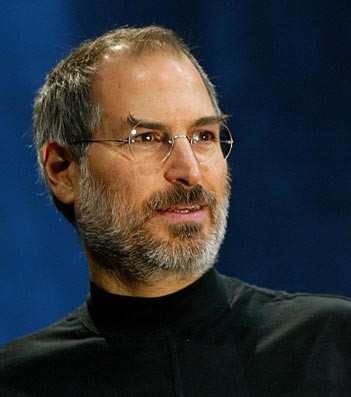
โดย ชัชวนันท์ สันธิเดช
วันก่อน ได้ชม วอร์เรน บัฟเฟตต์ ให้สัมภาษณ์สด 3 ชั่วโมงในรายการ Squawk Box ทางช่อง CNBC ซึ่งปู่บัฟฟ์จะให้สัมภาษณ์ยาวเหยียดเช่นนี้เพียงปีละครั้งเท่านั้นในช่วงต้นปี ก่อนจะถึงการประชุมประจำปีของเบิร์คไชร์ ฮาแธเวย์
การได้ฟังปู่บัฟฟ์ 3 ชั่วโมงรวด ปีละหนึ่งครั้ง เหมือนกับชม “ซูเปอร์โบวล์” ของโลกการเงินยังไงยังงั้นเลยครับ ตัวผมซึ่งตั้งหน้าตั้งตารอมาหลายวัน เลยนั่งฟังตั้งแต่ต้นจนจบ มีสมุดกับปากกาในมือ เรียกได้ว่าจดกันยิกเลยทีเดียว
ประเด็นที่น่าสนใจในการคุยกันคราวนี้มีเยอะอยู่ ขอเล่าให้ฟังสักเรื่องหนึ่งก่อน
เรื่องของเรื่องก็คือ ในช่วงต้นรายการ บัฟเฟตต์ได้เอ่ยชื่อบริษัท Apple เพื่อตอบคำถามที่ถามว่าเขาได้ตัวคนที่จะมาบริหารเบิร์คไชร์แทนหรือยัง โดยปู่ได้ย้อนถามว่า “แล้วคุณรู้ไหมล่ะว่าใครจะมาแทน ทิม คุก ที่ Apple”
ความหมายก็คือ การที่แกยังไม่เปิดเผยว่าใครจะมาบริหารเบิร์คไชร์แทนนั้นไม่ใช่เรื่องแปลก และไม่ต้องกังวลอะไร ก็เหมือนกับที่เราไม่รู้ว่าใครจะมาแทน ทิม คุก ที่ Apple แต่องค์กรยักษ์ใหญ่ดังกล่าวก็ย่อมจะอยู่ต่อไปได้นั่นเอง
ในช่วงต่อมา พิธีกรจึงถามว่า เมื่อครู่ที่คุณพูดถึง Apple คุณเคยคุยกับ “สตีฟ จ็อบส์” ผู้ล่วงลับหรือไม่ และคำตอบของบัฟเฟตต์ก็น่าสนใจมากครับ
สุดยอดนักลงทุนอันดับหนึ่งของโลกบอกว่า เขาเคยคุยกับจ็อบส์ไม่กี่ครั้ง โดยมีอยู่ครั้งหนึ่ง (เข้าใจว่าเป็นครั้งสุดท้ายก่อนจ็อบส์ตาย) จ็อบส์เป็นฝ่ายโทรมาหาเขา และขอไอเดียเกี่ยวกับการใช้เงินสดของ Apple ที่มีอยู่มากเกินไป
“เป็นการคุยกันที่น่าสนใจ เพราะผมไม่ได้คุยกับเขานานมาก เขาบอกผมว่า เรามีเงินสดเหลือเยอแยะ ผมจะใช้ยังไงดี เราก็เลยคุยกันถึงทางเลือกที่มี ซึ่งน่าสนใจทีเดียว” บัฟเฟตต์กล่าว
ปู่บัฟฟ์บอกเจ้าพ่อ Apple ว่า วิธีจัดการกับสภาพคล่องที่ล้นเกินของบริษัทมีอยู่ 4 วิธี คือ
1. ซื้อหุ้นคืน 2. จ่ายปันผล 3. ซื้อกิจการอื่น หรือ 4. นั่งทับมันไว้เฉยๆ
บัฟเฟตต์เล่าว่า แกได้อธิบายให้จ็อบส์ฟังถึงข้อดีข้อเสียของแต่ละวิธี แต่จ็อบส์บอกว่า เรื่องการซื้อกิจการนั้นคงไม่ได้ เพราะเขาไม่เห็นว่ามีกิจการไหนที่ควรจะซื้อและมีขนาดใหญ่พอให้ซื้อโดยใช้เงินเยอะๆ ได้เลย
คุณปู่เราได้ยินดังนั้นจึงบอกว่า “เป็นผมคงซื้อหุ้นคืนมา ถ้าคิดว่าหุ้นของตัวเองต่ำกว่ามูลค่า” แล้วเขาก็ถามจ็อบส์ว่า มองราคาหุ้น Apple ตอนนี้เป็นยังไง จ็อบส์บอกว่า “ผมว่าหุ้นของผมต่ำกว่ามูลค่าไปมาก”
ฟังดูเหมือนจ็อบส์น่าจะได้ไอเดียแล้วใช่ไหมครับ แต่เปล่าเลย จ็อบส์กลับถามปู่ต่อไปว่ามีวิธีใช้เงินอย่างอื่นอีกไหม โดยไม่ได้ถามถึงการซื้อหุ้นคืนอีก อาจเรียกได้สิ่งที่ปู่บอกแทบไม่ได้เข้าหูเขาเลย
แล้วบัฟเฟตต์ก็เล่าต่อไป ซึ่งทำให้เรารู้ว่าจ็อบส์ไม่ใช่คนที่สนใจเรื่องการเงินการลงทุนเลยแม้แต่น้อย โดยบอกว่า
“แล้วเราก็คุยกันต่อ แต่เขาไม่เคยทำอะไรเลย เขาชอบที่จะเก็บเงินไว้อย่างนั้น ที่ผมแปลกใจก็คือ หลังจากนั้น เขาไปพูดว่า ผมเห็นด้วยที่เขาไม่ทำอะไรกับเงินสดที่มีเลย (หัวเราะ) เขาไม่ยอมซื้อหุ้นคืน แม้จะเชื่ออย่างเต็มที่ว่าหุ้นของตัวเอง ณ ราคา 200 หรือเท่าไรก็ตามในตอนนั้น มันถูกเกินไปมากๆ”
ได้ทราบเรื่องของ สตีฟ จ็อบส์ จากปากของปู่บัฟฟ์แล้ว พาลให้นึกถึงคนรอบๆ ตัว คนรู้จักผมบางคนเป็นหมอ รายได้สูงมาก ผู้ใหญ่บางคนที่ผมคุ้นเคยก็มีธุรกิจส่วนตัว เงินสดเหลือเยอะ แต่พวกเขากลับไม่ได้สนใจเรื่องของการเงินการลงทุน ทำได้เพียงเอาเงินไปฝากประจำ ซึ่งก็เหมือนกับการ “นั่งทับเงินไว้เฉยๆ” ดังข้อ 4 ที่ปู่บัฟฟ์บอก
คนบางคน ความสามารถมาก ฉลาดปราดเปรื่อง แต่เรื่องการลงทุนเขาไม่สนใจ เพื่อนผมหลายคนเป็นแบบนี้ เอาช้างลากก็ไม่มา ไอ้เรามันพอจะรู้อะไรอยู่บ้าง บางทีเห็นแล้วก็อดเสียดายแทนไม่ได้ แต่อย่างว่าแหล่ะ เราอยู่คนละโลกกัน
เหมือน วอร์เรน บัฟเฟตต์ “เทพเจ้าแห่งการลงทุน” อยู่คนละโลกกับ สตีฟ จ็อบส์ “ศาสดาแห่งโลกนวัตกรรม” (ตั้งแต่จ็อบส์ยังไม่ตาย) นั่นแหล่ะครับ